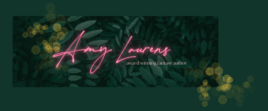Order direct above (because you love me) or from your favourite store in ebook or in print!
IN WHICH LEAVES ARE COMMON SENSE
Most people think leaves fall in autumn because they die, fluttering drifts of red and yellow and orange and brown, twirling on a breeze that smells like the promise of ice before falling to skitter along the ground with a hollow tick-tick-tick.
Most people, it turns out, are wrong.
About many things of course, but in this case about the leaves: deciduous trees don’t just shed their leaves wantonly, carelessly—or even regretfully.
No.
Deciduous trees lose their leaves because they’re frugal.
Turns out, the only reason the leaves change colour in the first place—be that ruby or pumpkin, butternut or hazel, or some striated rainbow in between—is because the cooling weather lulls the plant into sleepiness, and a sleeping plant is a plant that can’t eat (frozen leaves aren’t much good at collecting sunlight anyway, not when frost bursts their cell walls like bubbles, sharp fragments of ice severing pathways like a knife through warm, fresh neurons).
The colour change is just the outward signal of the tree’s common sense: drawing back in all the nutrients the leaf has to offer, slurping them back into the trunk where the tree can nurse on them all winter long, shedding the now-empty leaves like scales, sloughing them off like old skin, discarding dead storage units until the risk of frostbite has passed.
The day I realised I could do the same changed my life.
The snow was—predictably—cold. It was also early, and I’d been caught out hiking unprepared, which was just about the dumbest thing I’d managed to do yet in my life—apart from, maybe, George, and also attending New Beat University. An avid hiker since I’d been old enough to carry any sort of day pack with my parents, I knew the risks inside and out, backward and forward, upside and down.
Never go hiking alone.
Always pack extra Puritabs.
Let people know where you’re going, and when you expect to be back.
Take warmer things than you think you’ll need.
No one gives advice on what to do when your hike-mate has a sudden attack of lunar-cy, though, three days before the full moon. No one tells you what to do when you’re abruptly alone in a sea of grey-trunked eucalypt trees and tea tree scrub that stinks like face cleanser and scratches like the blazes, and you’ve now got two packs’ worth of gear to hike out. Alone.
Werewolves are not considerate hiking buddies, let me be the first to assure you.
Well. Amendment: Probably some of them are, maybe even most of them.
George? Not so much.
(In hindsight, unsurprising: he’d never been a very considerate roommate, either, no matter what physical form he was in.)
And, of course, it was cold.
And as I stood in the clearing where considerate wildlife had trampled down the tussock grass and a fallen gum tree was busy turning silver as it weathered, cold air singeing the inside of my nostrils and burning the tip of my nose, I realised I had a choice: I could get really, really cold as I sat around waiting for George to human up again—probably in three or four days once the moon had passed, but then again, he wasn’t supposed to have wolfed out this earlier either, so who knew?—or I could get really really warm trying to hike two packs’ worth of gear back out.
Or—I scratched my nose, face screwed up—I could redistribute the gear, take the expensive or vital stuff out in one pack, leave the rest somewhere covered and come back when it was safe.
With someone other than George, of course.
Bloody George.
Table of Contents
- In Which Leaves Are Common Sense
- Tims Testing Day (The Veiled Worlds)
- Familiars Need Enrichment Too (Kaditeos)
- Had Kafka Been A Teenaged Girl
- A Plague On Both Your Colonies
- To Walk One Path Alone (The Veiled Worlds)
